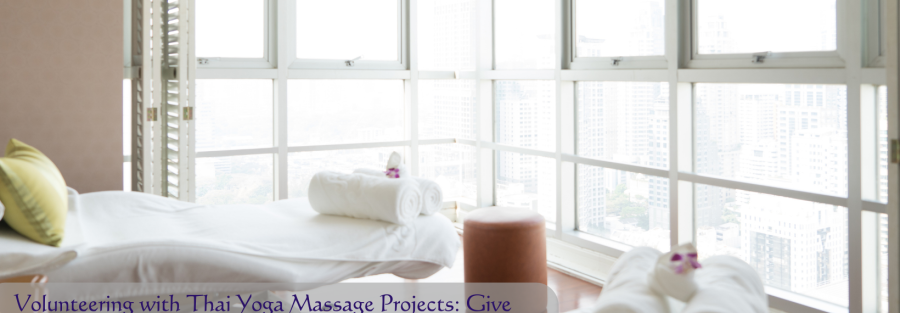Have you ever felt the urge to explore the world, experience new cultures, and make a positive impact? Perhaps you’ve also dreamt of deepening your yoga practice and learning an ancient healing art. Well, there’s a way to achieve all of these goals simultaneously: volunteering with Thai Yoga Massage projects!
Thailand, the “Land of Smiles,” is not just a beautiful country with stunning beaches and delicious food. It’s also the birthplace of Thai Yoga Massage, a unique system that combines acupressure, yoga postures, and Indian Ayurvedic principles. Volunteering with Thai Yoga Massage projects allows you to immerse yourself in this rich tradition while giving back to local communities.
This blog post is your one-stop guide to this unique volunteer experience. We’ll explore the numerous benefits of participating in a Thai Yoga Massage volunteer program, delve into what a typical program might entail, and offer valuable tips on finding the perfect project for you. Whether you’re a seasoned yogi or a complete beginner, this opportunity offers a chance to learn valuable skills, connect with like-minded individuals, and contribute to a meaningful cause.
Benefits of Volunteering with Thai Yoga Massage Projects
There are countless reasons why volunteering with Thai Yoga Massage projects is an enriching and rewarding experience. Here are just a few of the top benefits:
- Learn an ancient healing art: Immerse yourself in the rich tradition of Thai Yoga Massage and gain valuable skills under the guidance of experienced teachers. You’ll learn about acupressure points, yoga postures specifically designed for massage, and techniques to improve flexibility and well-being.
- Give back to local communities: Many Thai Yoga Massage volunteer programs support underprivileged communities, NGOs, or rehabilitation centers. Your skills will be used to provide much-needed massage therapy to those who might not otherwise have access to it.
- Immerse yourself in Thai culture: Live, learn, and work alongside Thai people, experiencing their hospitality and rich cultural traditions firsthand. This can involve learning basic Thai phrases, exploring local markets, and participating in cultural events.
- Personal growth and development: Volunteering abroad pushes you outside your comfort zone, fosters self-reliance, and allows you to develop new skills and a broader worldview. You’ll gain valuable life experiences and make lifelong connections with people from all over the globe.
- Combine travel with a meaningful purpose: Fulfill your travel desires while contributing to a worthy cause. This type of volunteer vacation allows you to explore a new country while making a positive impact.
- Deepen your yoga practice: Whether you’re a beginner or an experienced yogi, Thai Yoga Massage incorporates yoga postures and stretches. Participating in a volunteer program can significantly deepen your understanding and practice of yoga.
What to Expect in a Thai Yoga Massage Volunteer Program
Volunteer programs vary depending on the organization and your chosen location. However, there are some general aspects you can expect:
- Training: Most programs offer a comprehensive training course in Thai Yoga Massage techniques. This typically involves a combination of theoretical knowledge and practical sessions, allowing you to learn the fundamentals and practice on fellow volunteers. Training duration can range from a few days to several weeks.
- Volunteering: Once trained, you’ll put your newly acquired skills to use by providing massage therapy to program beneficiaries. This can include people in underprivileged communities, individuals with disabilities, or patients in rehabilitation centers. The number of hours you volunteer per day or week will vary depending on the program.
- Accommodation and meals: Programs often provide basic accommodation, such as shared dormitories in volunteer houses or guesthouses. Some programs might also include meals or offer a meal stipend.
- Cultural immersion: Many volunteer programs incorporate cultural activities and excursions. This might involve visiting temples, learning basic Thai language skills, or participating in cooking classes.
- Program costs: There are usually program fees that cover training, accommodation, and sometimes meals. Flights, travel insurance, and personal expenses are typically not included.



